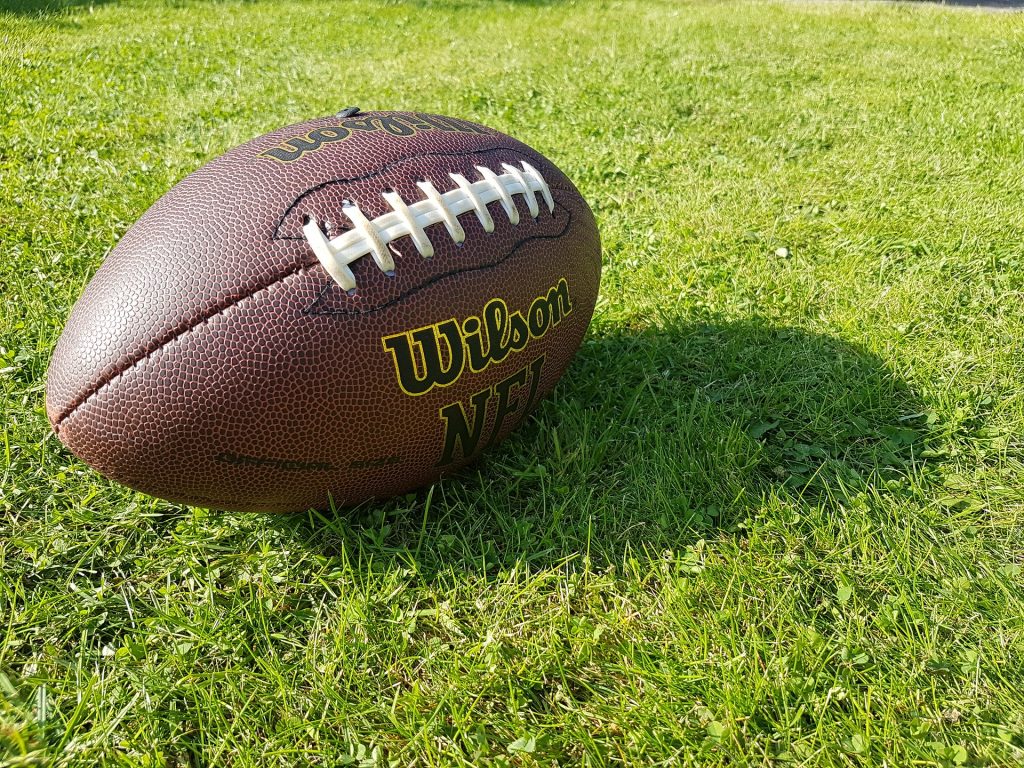
Image Source: Pixabay
Football is America’s sport. And yet, its future is in question. While the fact that a little over 1 million high schoolers participated in football leagues during the 2014-2015 season sounds good on the surface, when one steps back and observes the trends, it turns out that the number has been trending downwards in recent years. Some kids are trying different sports, while others are avoiding competitive athletics entirely because of the dangers of injury.
However, allowing our sons to skip out on sports, and football in particular, can actually have quite a few negative side effects, in many ways throwing out the baby with the bathwater. If you’re a father and you’ve got a young’un growing up in the household, it’s important that you still take that time to teach them the value of this incredible sport. Here’s why:
Football at Face Value
While everyone loves to beat up on football these days, the truth is, it’s a high-caliber sport that requires skill to play and comes with many benefits for those who participate. It helps with elements like strength training, dexterity, and even simple things like cardio and keeping your overall health in good condition. These benefits don’t just apply during critical phases of their physical growth, either. It continues to help them learn the importance of good exercise and staying fit as they enter the much more competitive college scene, as well.
Kids who are serious about football also have the incentive to stay away from things like drugs or alcohol as they pursue stardom on the field. And then there’s the fact that it’s one of the few ways in the modern world that our kids actually get up and do something physical. The statistics don’t lie: 76 percent of children in America don’t get the recommended amount of physical activity, with half of all children spending between 1-4 hours each day staring at screens. In an era where a sedentary lifestyle has become the norm for both children and adults alike, teaching football to your son gives him — not to mention yourself — a chance to stop sitting still and get moving.
A secondary benefit is cross-training. Football not only gets kids exercising, but it improves hand-eye coordination, agility, and vision. While these are great benefits on their own, it’s also helpful for cross-training in other sports, such as lacrosse or soccer.
Values in Action
In a world where the definition of a man is being warped in practically every speech given by a politician or a social activist, the responsibility for parents — and in this context, especially fathers — to teach their sons how to be good people is more important than ever.
This responsibility can take many forms. At times you’ll want to sit them down and talk to them about faith, hard work, how to be a gentleman, and myriad other things that come with a fulfilling, faith-based life. But, while the talks are critical components, sometimes you’ve also got to get them up and moving to see some of those values in action. And that’s where football comes into play.
Take, for example, the obvious lesson of how to be a good loser and, even more importantly at times, a gracious winner. These are great concepts to talk about, but once you put a pigskin in their hand and have them try to get by you a few times, well, that’s when they’re really going to start to feel the frustration that comes with failure. And that’s a good thing!
“We all know that all our lives we’re getting knocked down,” wrote former Atlanta Falcon Tim Green in his book, The Dark Side of the Game: My Life in the NFL. “It happens to the richest, smartest, and most famous people. The difference with a kid that plays football is that for the rest of his life he knows how to get back up.” He continues: “Football teaches kids to get up, over and over again, and that’s why you see so many people in successful positions in life, not who played in the NFL, but who played football at some level as a kid and learned that lesson that stayed with them in everything else they did.” In short, football teaches resilience and perseverance.
“Don’t other games teach determination, too?” asked writer and University of Virginia English professor Mark Edmundson. “Sure they do: You can learn to come back again and again in soccer and tennis and baseball. But in football more than others, the knockdown is physical. There’s nothing abstract about it. You go down, you get a taste of the turf, and then, often aching, often a touch humiliated, you have to get back up.”
One benefit of you teaching your son to play football is that, well, you are the one doing it. That means you’ll be right there by their side as they learn things like how to process that failure, pick themselves back up, and try, try again.
The Importance of Teamwork
Remember, teaching your son how to play football isn’t the same thing as teaching them how to catch a football. The game itself is a whole other animal. It’s complex, involves offense and defense, has a boatload of rules, and involves teamwork. That last one is huge. One of our top priorities in teaching the game itself shouldn’t be technical proficiency or top-of-the-line conditioning. It should be the value of teamwork.
Learning how to work with others, how to be part of a bigger picture, and how to be okay with someone else getting the spotlight can all have a huge impact on a boy’s development into a man. It can teach them the importance of a humble attitude as well as how to put others first.
Keep It Safe!
Finally, while teaching your son about things like teamwork and how to foster a “don’t give up” attitude are key when it comes to football, it’s extremely important to also remember to prioritize safety as well. Coach Larry Fedora was on the money when he said that ultimately the responsibility of remaining safe on the field lies with the players themselves. That’s why it’s crucial that we teach our sons about things like undiagnosed brain injuries and other inherent risks that come with playing the game. It can help them avoid making boneheaded decisions in the name of glory that will end up coming back to bite them down the road.
The NFL is already spending millions of dollars to teach young players to play smarter and avoid injuries, such as through their Play 60 program. The program helps kids stay active, but also teaches players how to tackle properly, reducing the chance of injuries like concussions and protecting both themselves and their opponents. It teaches children how to protect themselves from injury, which can be applied outside of sports, as well.
Using the game of football to teach our sons to be smart, responsible, passionate, and respectful is a life lesson that will pay them back in spades as they continue mature into God-fearing men and begin to make their own mark on the world.

Leave a Reply
You must be logged in to post a comment.